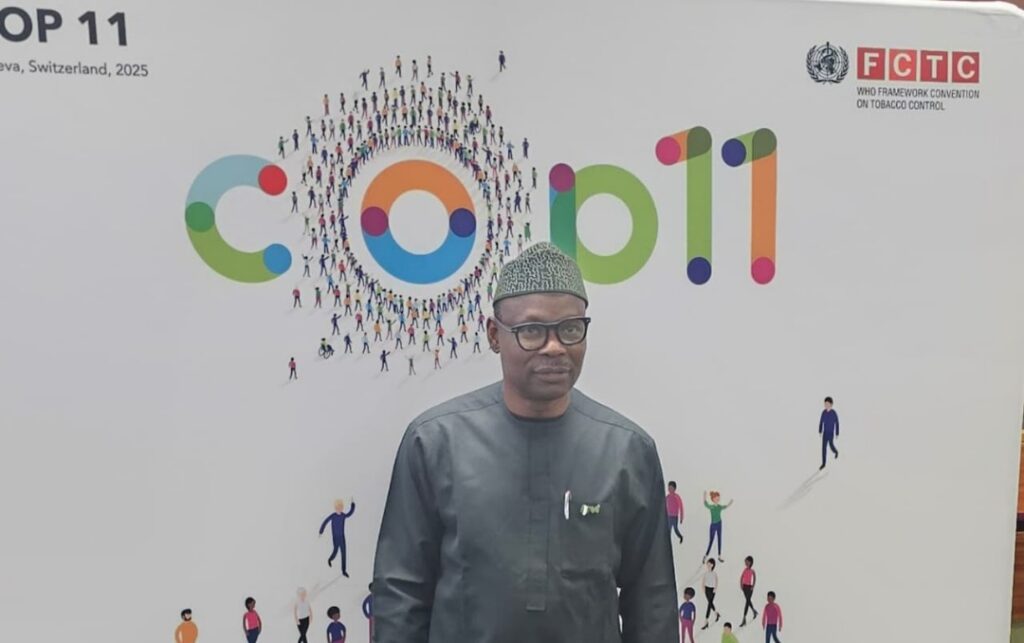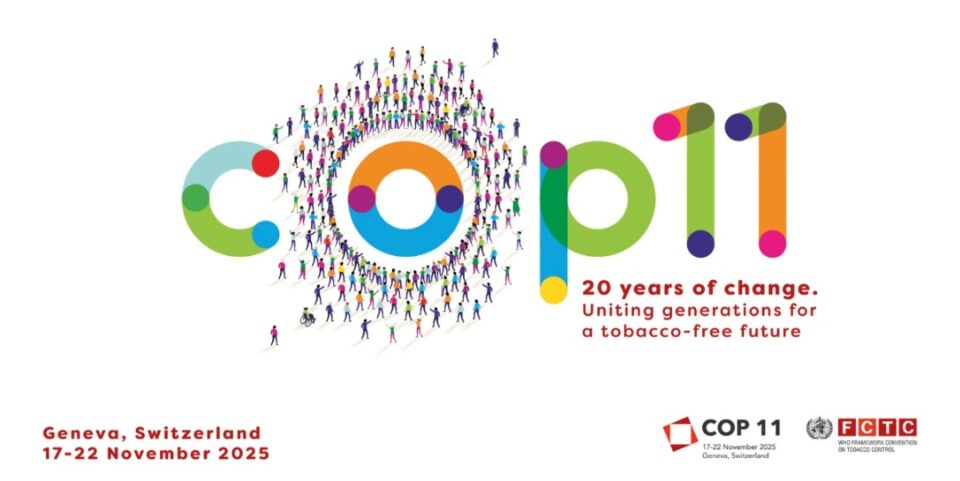Civil society organisations (CSOs) working in tobacco control have applauded the “outstanding leadership” of the Minister of State for Health, Dr. Iziaq Adekunle Salako, and the Nigerian delegation at the 11th Session of the Conference of the Parties (COP11) to the WHO Framework Convention on Tobacco Control (WHO-FCTC) in Geneva, while calling for this global performance to translate into stronger domestic impact.
In a joint statement, the groups praised Nigeria’s resoluteness in rebuffing tobacco industry interference and standing firmly on the side of public health throughout the conference.
COP11, held from 17–22 November, brought together more than 1,400 delegates from governments, international organisations, and civil society across 162 Parties to the WHO-FCTC. The high-level dialogue reviewed two decades of progress under the global treaty and deliberated on strategies to accelerate implementation.
The statement, signed by Corporate Accountability & Public Participation Africa (CAPPA), the Nigerian Tobacco Control Alliance (NTCA), the Centre for Youth Inclusion & Development (CYID), and the Civic Society Legislative Advocacy Centre (CISLAC), highlighted Nigeria’s strong interventions in favour of strict regulation of emerging tobacco and nicotine products, alongside other critical measures for protecting public health.
Dr. Salako, who delivered Nigeria’s high-level statement at COP11, presented new national data and outlined strengthened enforcement and regulatory actions that reaffirmed the country’s commitment to the WHO-FCTC and to safeguarding Nigerians’ health.
“Despite persistent overtures and pressure from the tobacco industry and its allies, Nigeria stood firmly on the side of public health diplomacy, making timely, principled, and decisive interventions on critical issues such as the robust regulation of emerging tobacco and nicotine products, stronger liability and environmental provisions, and forward-looking measures to protect Nigerians,” the coalition said.

The CSOs also emphasised the pivotal role Nigeria played within the African Group, noting that its leadership helped break negotiation deadlocks, stabilise discussions, and strengthen the African bloc’s collective position.
“As a recognised leader within the African region, Nigeria’s principled voice was relied upon at crucial moments. Our delegation’s performance reaffirmed the country’s reputation as a nation committed to the highest standards of public health protection,” the groups noted.
They commended the presence and contributions of Nigerian civil society groups and health experts, including Dr. Omotayo Francis Fagbule, Public Health Dentist and Tobacco Control Researcher at the College of Medicine, University of Ibadan, describing their involvement as proof of the “whole-of-society strength driving tobacco control in Nigeria.”
However, the CSOs stressed that this global performance must be matched with domestic implementation, especially as Nigeria slipped further in the latest global ranking on tobacco industry interference.
“After being a strong and reliable voice for public health in Geneva, the real work begins at home,” the statement said. “Nigeria must now translate this leadership at the global negotiation table into firm leadership in implementation. The commitments we defended abroad must be matched with concrete actions within our borders.”
They called for stronger enforcement, accelerated regulatory action, full protection of public health policies from tobacco industry interference, and adequate, predictable, and transparent domestic funding to operationalise the National Tobacco Control Act (NTC Act) and Regulations.
“Without sufficient and accountable funding, the NTC Act risks remaining largely symbolic,” they warned.
“Nigeria has shown what principled leadership looks like. The next chapter is to demonstrate that same leadership in the daily work of implementation so that our citizens—especially our young people—can fully benefit from the protections we championed on the global stage.”

